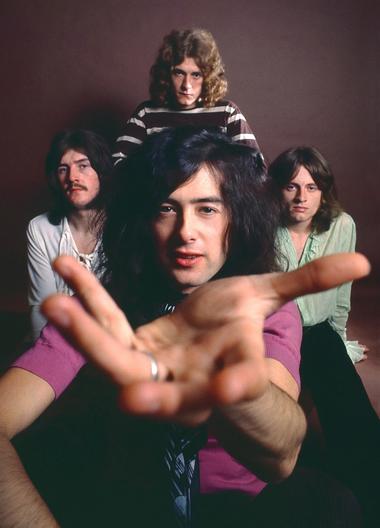
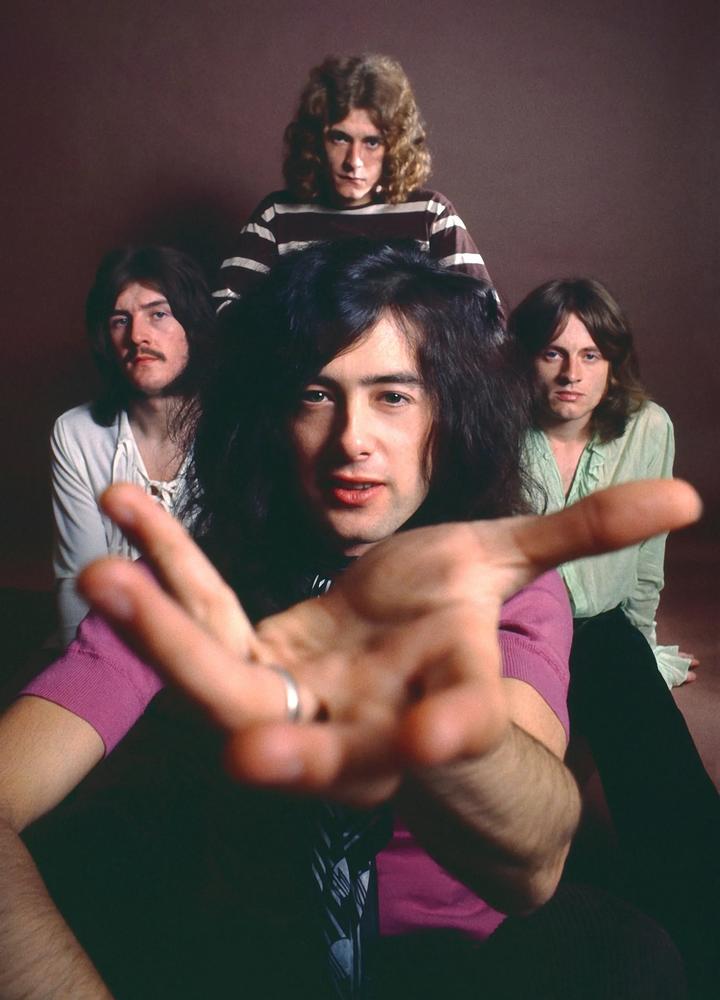
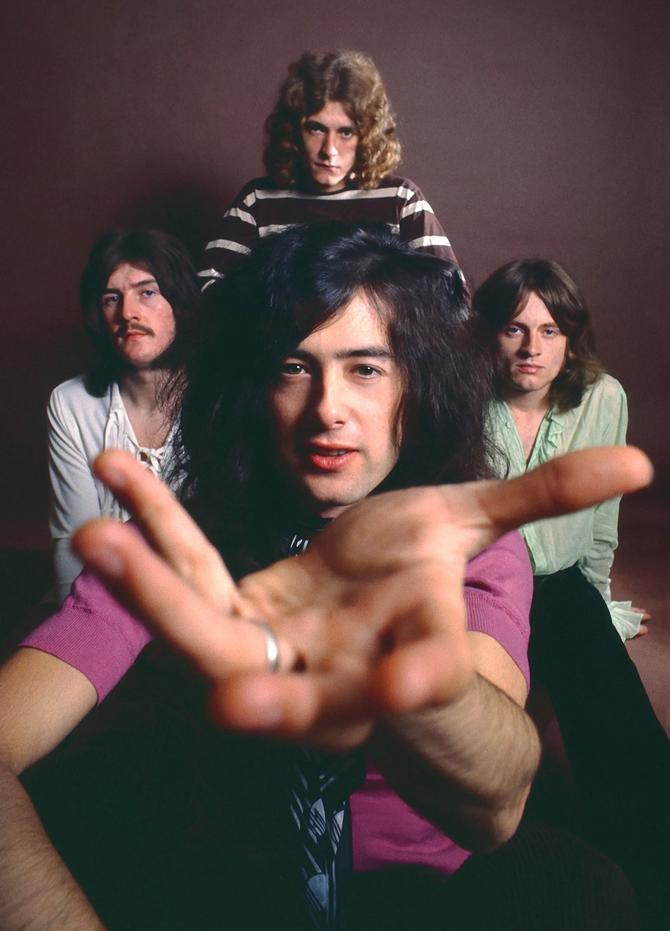
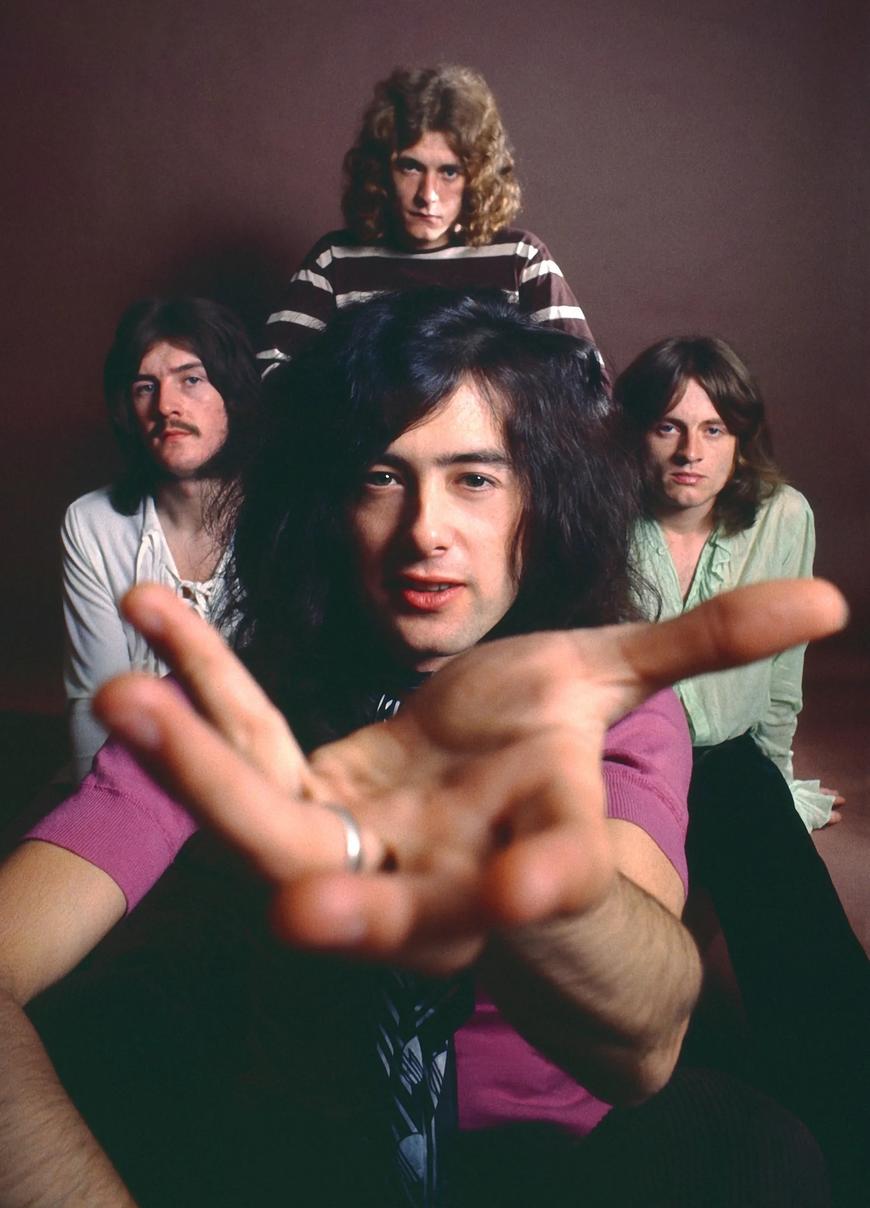
"Stairway to Heaven" by Led Zeppelin is an iconic rock song known for its musical complexity, poetic lyrics, and enduring legacy. Released in 1971 as part of the album "Led Zeppelin IV," the song showcases the band's artistic prowess and their ability to create a timeless masterpiece. This creative musical analysis will delve into each instrument's contribution, examine the song's structure and sections, and provide a detailed analysis of the profound and thought-provoking lyrics, including the exploration of key quotes. We will also discuss the song's legacy and lasting impact on the world of music.
I. Musical Analysis:
a. Guitar: Jimmy Page's guitar work is a standout element of "Stairway to Heaven." The song begins with a captivating acoustic guitar intro, showcasing Page's intricate fingerpicking style and setting a mystical tone. As the song progresses, Page's electric guitar adds layers of depth and emotion, culminating in a soaring and memorable guitar solo that perfectly captures the song's climactic moments.
b. Vocals: Robert Plant's vocal performance is mesmerizing, ranging from delicate and introspective to powerful and impassioned. He skillfully conveys the song's lyrical themes and emotions, capturing the listener's attention with his evocative delivery and exceptional vocal range.
c. Bass and Drums: John Paul Jones' bass provides a solid foundation, anchoring the song's rhythm and adding a subtle layer of complexity. John Bonham's drumming is dynamic and precise, complementing the various sections of the song with subtle fills, transitions, and impactful moments that enhance the overall musical experience.
d. Keyboards: While not prominently featured throughout the entire song, John Paul Jones' keyboard contributions add a layer of ethereal beauty, particularly in the song's climactic moments, creating a rich and textured musical landscape.
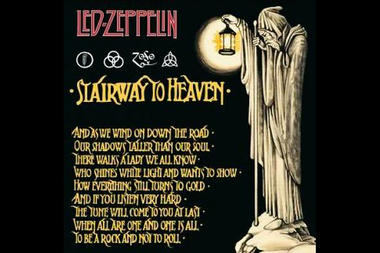
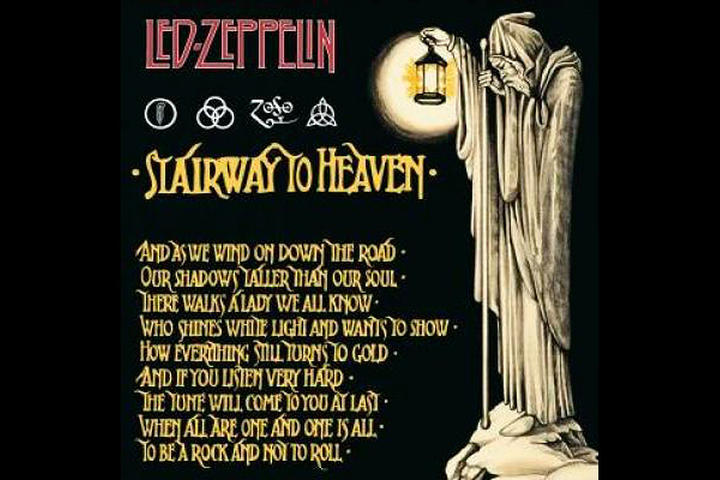
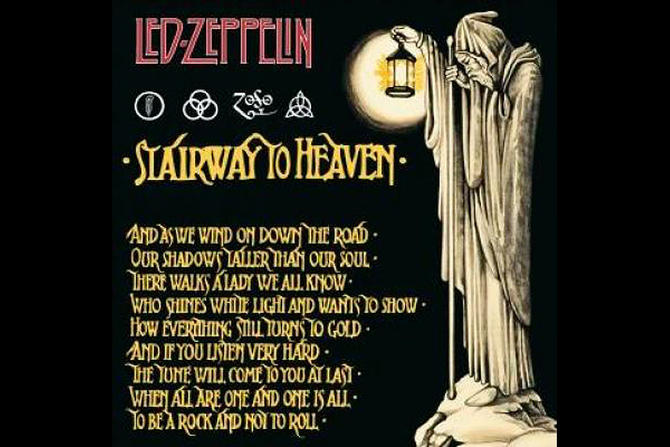
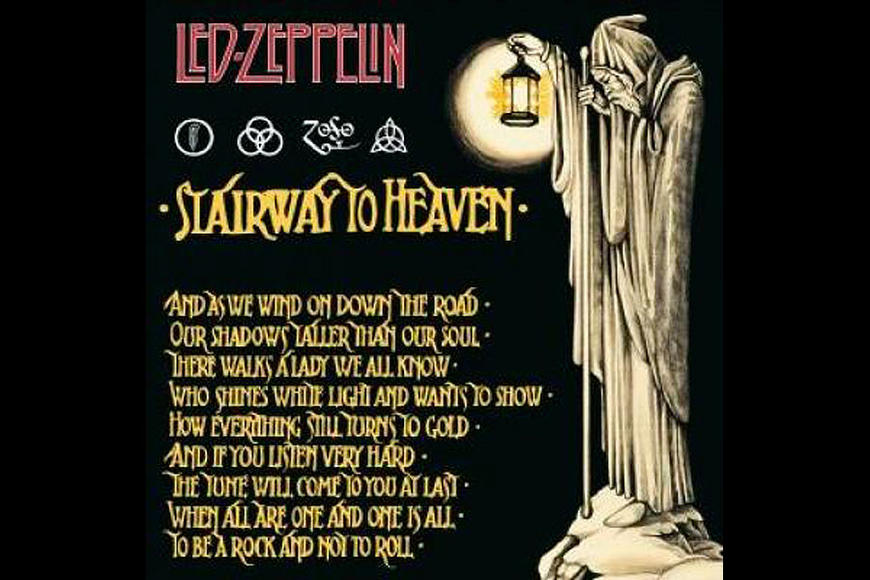
II. Song Structure and Sections:
"Stairway to Heaven" is renowned for its distinctive structure, seamlessly transitioning between several distinct sections:
a. Introduction: The song begins with a haunting and captivating acoustic guitar introduction, drawing listeners into its mystical and introspective atmosphere. This section sets the tone and captures the imagination from the very start.
b. Verse and Chorus: The first verse introduces the narrative, while the chorus provides a melodic and lyrical anchor, building anticipation for the ensuing musical journey. Plant's vocals soar, accompanied by gentle instrumentation that complements the reflective lyrics.
c. Bridge: The song transitions into a softer, reflective bridge section, featuring delicate guitar arpeggios and introspective lyrics. This section serves as a contemplative interlude before the song's powerful climax.
d. Instrumental Break: Led by Jimmy Page's electric guitar, this section showcases an energetic and emotive guitar solo that gradually builds in intensity. The instrumentation evolves, creating a sense of rising energy and anticipation.
e. Climax: The song reaches its pinnacle with a crescendo of instruments, including Plant's powerful vocal performance and Page's iconic guitar solo. The combination of soaring vocals, intricate guitar work, and dynamic rhythm section creates an electrifying and emotionally charged experience.
f. Outro: The song concludes with a return to the acoustic guitar, providing a sense of resolution and tranquility. The gentle fading of the instrumentation leaves a lingering impact, leaving the listener with a sense of awe and reflection.
III. Lyrical Exploration and Key Quote Analysis:
The lyrics of "Stairway to Heaven" are rich with symbolism, introspection, and spiritual themes. The following quotes highlight the depth and poetic nature of the song:
"There's a lady who's sure all that glitters is gold, and she's buying a stairway to heaven."
This quote introduces a character who believes that material wealth and superficiality can lead to spiritual enlightenment, represented by "buying a stairway to heaven." It explores the illusion of pursuing materialistic desires as a means of achieving true fulfillment and questions the value of material possessions in the grand scheme of life's journey.
"And as we wind on down the road, our shadows taller than our soul."
These lines offer a reflection on the human condition, suggesting that our external actions and appearances, represented by our shadows, may overpower or overshadow the true essence of our souls. It provokes contemplation on the importance of self-reflection, inner growth, and the challenge of maintaining authenticity in a world often driven by external expectations and illusions.
"Yes, there are two paths you can go by, but in the long run, there's still time to change the road you're on."
These lines acknowledge the power of choice and the possibility of redemption or transformation. They highlight that individuals have the freedom to choose their path in life, even if they find themselves on a less desirable road. The quote encourages self-reflection and the belief that it is never too late to make positive changes and find a different, more fulfilling direction.
The lyrical depth and poetic nature of "Stairway to Heaven" offer layers of meaning and invite listeners to ponder the profound themes and philosophical questions posed by the song.
IV. History, Rumors, and Legacy:
"Stairway to Heaven" was written by Jimmy Page and Robert Plant during Led Zeppelin's tour in 1970. The song's creation has sparked numerous rumors and legends, including the infamous suggestion that the song contains hidden messages when played backward. However, these rumors remain unsubstantiated and serve to enhance the song's mythical status.
In terms of legacy, "Stairway to Heaven" has solidified its place as one of the greatest rock songs of all time. It has inspired countless musicians and listeners with its musical complexity, introspective lyrics, and emotional depth. The song's enduring popularity and impact continue to resonate across generations, making it a timeless masterpiece that has transcended the boundaries of rock music.
Conclusion:
"Stairway to Heaven" stands as a testament to Led Zeppelin's artistic brilliance and musical prowess. Through its intricate instrumentation, soaring vocals, profound lyrics, and timeless beauty, the song has left an indelible mark on the world of music. Its legacy as an iconic rock anthem continues to captivate listeners and inspire artists, solidifying its place as one of the most remarkable and enduring compositions in the history of popular music.